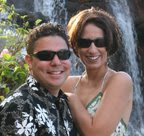The child may know what he/she wants to say, but the area of the brain cannot "motor plan" appropriately to make the muscles of the jaw and mouth move appropriately to make the sounds. Even when trying to correct them, the child cannot figure out how to make the correct syllables and sounds. Some signs of apraxia include children who have very limited sounds they can make, intelligible speech that doesn't "clear up" with time, inconsistent speech errors, frustration with speech correction attempts, ability to say short words but can't string a series of words together, drops ending off of words, can imitate sounds better than plan them on their own, etc.
The information below is taken directly from www.aprakia-kids.org.
What is Childhood Apraxia of Speech?
Childhood Apraxia of Speech is a motor speech disorder. For reasons not yet fully understood, children with apraxia of speech have great difficulty planning and producing the precise, highly refined and specific series of movements of the tongue, lips, jaw and palate that are necessary for intelligible speech. Apraxia of speech is sometimes called verbal apraxia, developmental apraxia of speech, or verbal dyspraxia. No matter what name is used, the most important concept is the root word "praxis." Praxis means planned movement. To some degree or another, a child with the diagnosis of apraxia of speech has difficulty programming and planning speech movements. Apraxia of speech is a specific speech disorder.The act of speech begins with an intention to communicate. Next, an idea forms, outlining what the speaker wants to say. The words for the desired message are put in the correct order, using the correct grammar. Each of the words are comprised of a specific sequence of sounds (also called phonemes)and syllables that must be ordered together. All of this information is translated from an idea and information about order of sounds into a series of highly coordinated motor movements of the lips, tongue, jaw, and soft palate.
The brain must tell the muscles of these “articulators” the exact order and timing of movements so that the words in the message are properly articulated. Finally, the muscles must work properly with enough strength and muscle tone to perform the movements needed for speech.
In typically developing speech, children make word attempts and get feedback from others and from their own internal systems regarding how “well” the words they produced matched the ones that they wanted to produce. Children use this information the next time they attempt the words and essentially are able to “learn from experience.” Usually once syllables and words are spoken repeatedly, the speech motor act becomes automatic. Speech motor plans and programs are stored in the brain and can be accessed effortlessly when they are needed. Children with apraxia of speech have difficulty in this aspect of speech. It is believed that children with CAS may not be able to form or access speech motor plans and programs or that these plans and programs are faulty for some reason.




No comments:
Post a Comment